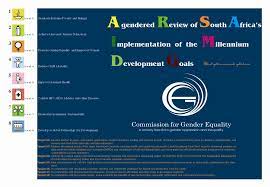
August is Women’s Month in South Africa. The biggest non-scandal that escaped mention in both the Women’s Day speeches of the president and the deputy president is not simply the oppressive social conditions imposed on women, but the fact that it is getting worse. The Tshwaranang Legal Advocacy Centre to End Violence Against Women reports that this year, while gender based violence rises steadily, just 8% of monitored police stations complied with their obligations under the Domestic Violence Act. In 2007 compliance had stood at 57%. Maternal deaths during childbirth now stand at 625 per 100,000 – four times the number it was at in 1990; during the same period the much poorer Sub-Saharan African region as a whole reduced maternal mortality rates by a quarter!
Two recent comprehensive assessments of gender inequality bear out this picture. The United Nations Committee on the Convention on the Elimination of all Forms of Discrimination Against Women (CEDAW) had its 48thsession from 17 January to 4 February this year. Three organisations – People Opposing Women Abuse, Centre for the Study of Violence and Reconciliation and the Western Cape Network on Violence Against Women – together submitted a shadow report on the implementation of CEDAW. The authors of the report assess South Africa’s performance by systematically measuring the social position of women against all the articles of CEDAW using the latest data. Their findings cannot be ignored, except by presidents and deputies with selfish agendas. On legal equality the shadow report says, ‘Whilst the State has embedded the right to gender equality in the Constitution, the legislature and executive have failed to fully honour their resultant constitutional obligations.’ But the main failure is with regard to the central demand of the Women’s Charter for real, effective equality. The report laments that ‘there is a systemic failure to effectively translate these laws into meaningful change in women’s lives.’ It then identifies a strong trend towards ‘a consistent failure to move effectively from de jure to de facto enjoyment and realisation of the rights in question.’
The second comprehensive assessment was released last year by the statutory Commission for Gender Equality (CGE) as a report entitled ‘What gets measured, gets done’ – A gendered review of South Africa’s implementation of the Millennium Development Goals. It should be more difficult to ignore watchdog bodies appointed by the constitution rather than civil society ones, but so far the government has done so with ease. Their motivation must be that, if anything, the CGE report is even more scathing than that of the three civil society groups. After documenting in detail how spectacularly South Africa is failing to come even close to achieving the Millennium Development Goals for women, the commissioner overseeing this review writes, ‘Despite Constitutional guarantees underpinned by groundbreaking legislative provisions, and gains on the front of political representation, access to equality and justice, and freedom from discrimination remain a pipe dream for the majority of women.’ Both the stipulations of CEDAW and the Millennium Development Goals are much more moderate than the demands of the Women’s Charter for Effective Equality and the manner in which this society is not making progress on achieving the first two means it is moving away rather than towards effective equality.
So, yes, this is where South Africa is at. For the majority of women, freedom, justice, equality or just some peace is a ‘pipe dream,’ which the Merriam-Webster dictionary defines as an ‘illusory or fantastic plan, hope or story.’ Why?
(This post originally appeared here. Thanks to Ronald for the collaboration!)
(Photo Credit: Commission for Gender Equality)